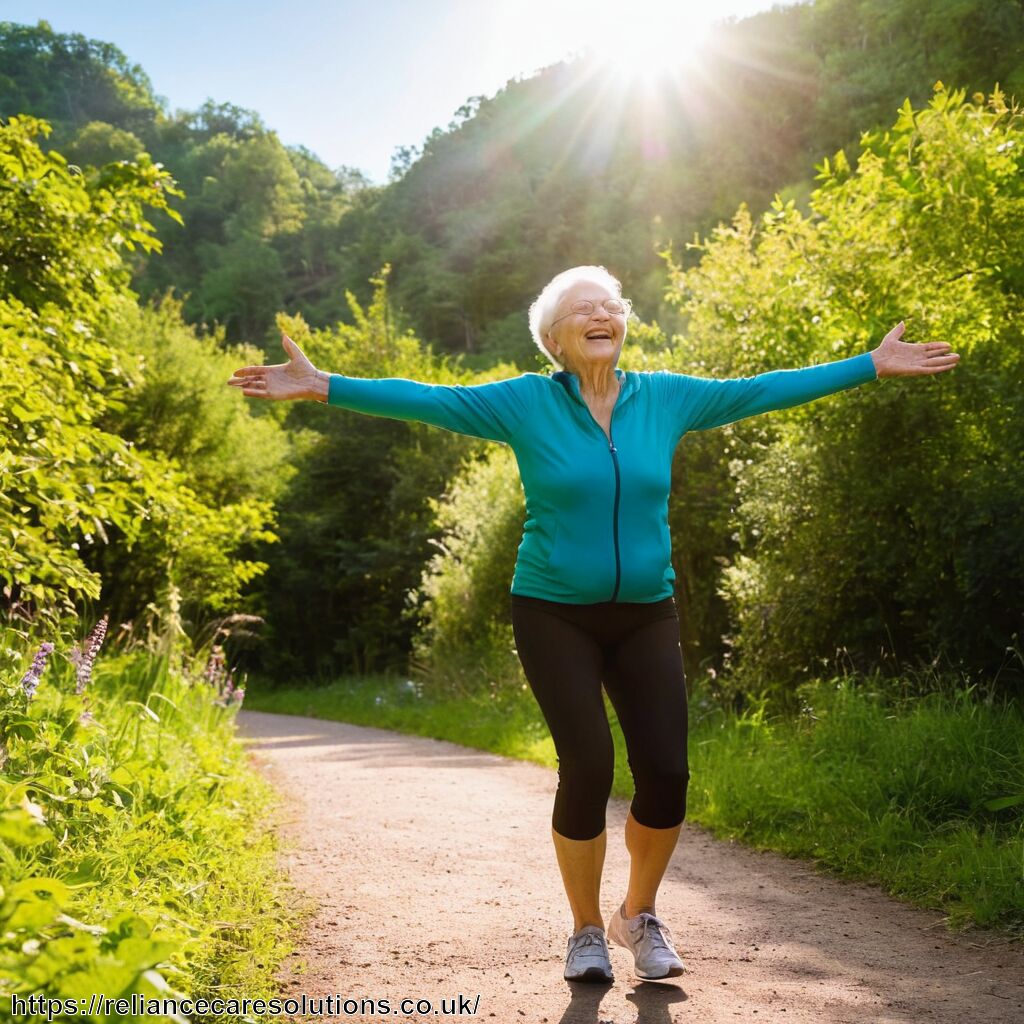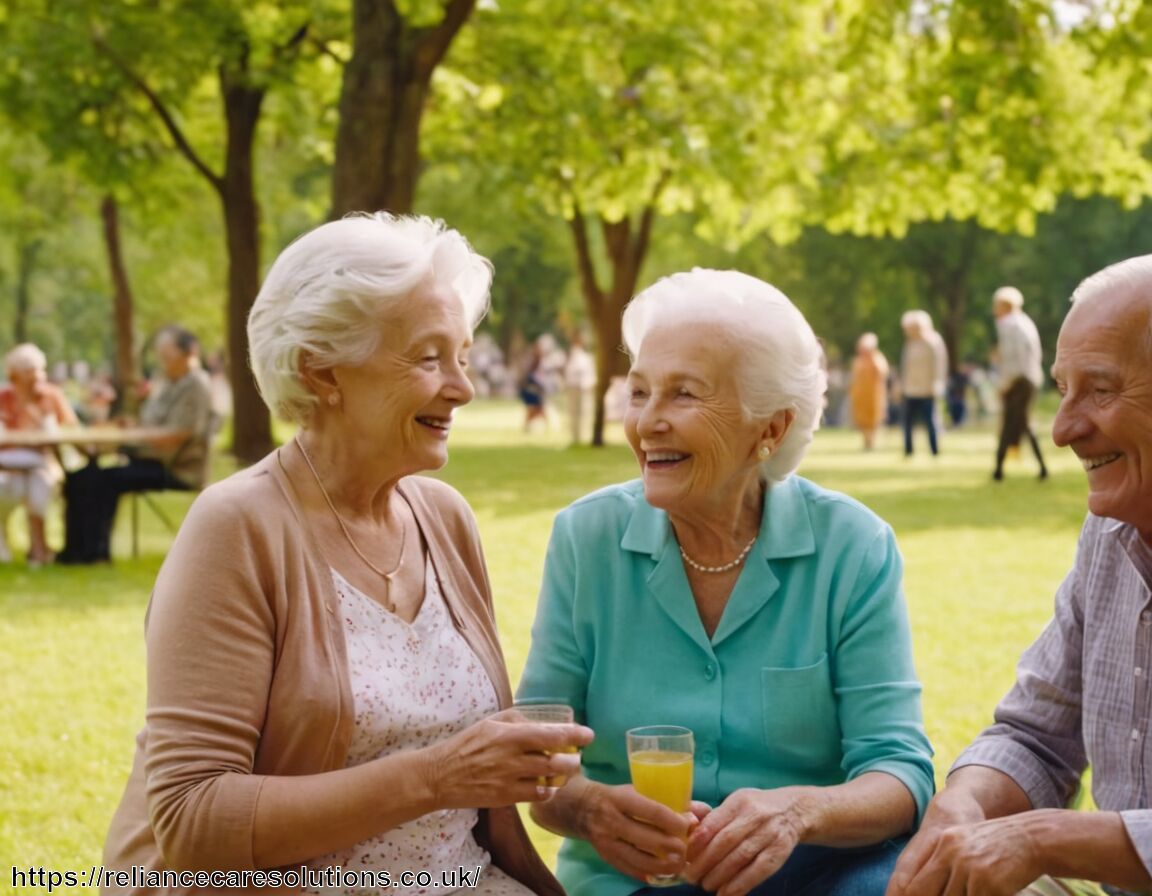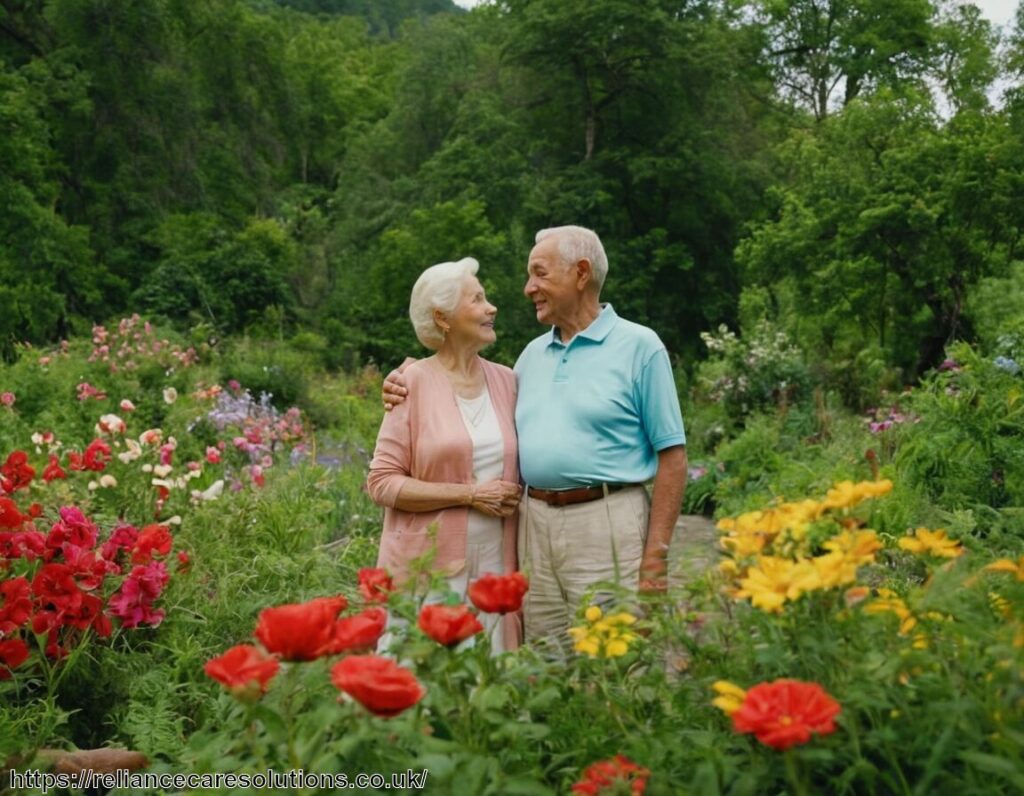Ageing healthily is a concern for many people. An active lifestyle makes a significant contribution to staying fit and vital for a long time. Regular exercise, a balanced diet and maintaining social contacts are just some of the building blocks that help us to do this.
In order to experience well-being and enjoyment of life in old age, it is important to pay attention to various aspects of life. Sufficient sleep and effective stress management through relaxation techniques can also have positive effects. If you actively work on your mental fitness, you will strengthen your mental health.
Maintain a healthy diet on a regular basis
Maintaining a healthy diet on a regular basis is crucial for your well-being in old age. You should make sure that you include fresh and unprocessed foods in your daily diet wherever possible. Fruit and vegetables are particularly important as they contain many vitamins, minerals and antioxidants that support your body.
It is also advisable to focus on wholesome carbohydrates, healthy fats and high-quality proteins. Wholemeal products, nuts and oily fish provide the necessary nutrients, while you reduce your intake of sugar and highly processed foods. This not only helps you to maintain a healthy weight, but also has a positive effect on your cardiovascular system, as the latest anti-ageing trends show.
Don’t forget to drink enough water. Hydration plays a big part in how well you feel. You can also include herbal teas or diluted juices in your daily routine. By always paying attention to your eating behaviour and making small adjustments, you create the basis for an active and vital life in old age.
Integrate physical activity on a daily basis

Physical activity is an essential aspect of your well-being and quality of life as you age. Incorporating daily exercise can work wonders. It doesn’t matter whether you have a sporting background or not – every step counts! Just 30 minutes a day can help you stay fit.
You can use everyday activities such as walking, cycling or gardening to get moving. Gentle sports such as yoga or tai chi also promote flexibility and mobility. These exercises are not only good for your body, but also for your mind. Regular physical activity helps to reduce stress and improve your general well-being.
Try to find a personal rhythm that suits you. For example, you could go for a short walk around the block or go hiking with friends to socialise. The most important thing is that you enjoy exercise and integrate it into your everyday life. This will improve your quality of life and keep you energised!
| Aspect | Meaning | Tips |
|---|---|---|
| Healthy diet | Supports physical well-being | Fresh food, wholemeal products, sufficient water |
| Physical activity | Increases quality of life and fitness | Daily exercise, e.g. walking, yoga |
| Social contacts | Promotes emotional health | Regular meetings with friends and family |
Encourage and plan sufficient sleep
Sleep plays a crucial role in your well-being as you get older. Sufficient and regular sleep is necessary to regenerate your body and mind. If you don’t get enough sleep, it can affect your mood, concentration and general health.
You should try to establish a fixed sleep rhythm. If possible, go to bed at the same time every night and get up at the same time. This will help your body to get used to a regular rhythm. A quiet and dark bedroom can also be conducive to creating the conditions for restful sleep.
Make sure to incorporate relaxing activities before bedtime, such as reading or meditating. Avoid stimulating drinks such as coffee in the evening and foods that stimulate blood circulation. A good sleep environment that is free from disturbances will help you fall asleep faster and improve the quality of your sleep.
By considering and implementing sleep as an important part of your health strategy, you create optimal conditions for mental and physical fitness in old age. This in turn leads to a better quality of life and more enjoyment in everyday life.
Utilise stress management through relaxation techniques
Stress management is an important aspect of your general well-being. Relaxation techniques can help you to regain inner peace and reduce the stress of everyday life. Effective methods include breathing exercises, meditation and progressive muscle relaxation.
By using these techniques regularly, you can learn to reduce tension and focus better on the positive things in life. Daily breaks from the hustle and bustle of everyday life are important to re-energise your body and mind. You could spend these rest periods in nature, for example – even a short walk can work wonders.
In addition, yoga and tai chi offer gentle forms of exercise that not only strengthen your body but also help to calm your mind. Practising these exercises promotes a sense of calmness and improves your ability to concentrate. By integrating such techniques into your everyday life, you create a space for inner peace and a better quality of life.
Actively maintain social contacts

Social contacts play an important role in your well-being and health in old age. You should regularly spend time with family and friends, as these relationships not only promote your emotional balance, but also strengthen your immune system. Shared activities, such as joint excursions or games evenings, help you to deepen your bonds.
You can also make new friends, for example by attending associations, courses or clubs. It’s an advantage to try out things you’ve always wanted to do. Shared interests quickly create a feel-good effect that makes you feel better.
Make sure you incorporate regular meetings into your everyday life. Making plans, whether it’s for a coffee or a walk, motivates you and keeps you active. As well as the emotional benefits, socialising has a positive impact on your mental health as it reduces loneliness and increases happiness. When you interact with others, you feel more alive and connected to the world around you.
Carry out regular medical check-ups

Regular medical examinations should be an integral part of your health routine. They help to recognise illnesses at an early stage and enable rapid treatment. It is particularly important to pay attention to changes in your body as you get older. Early detection can often prevent serious health problems.
You should see a doctor at least once a year. Routine examinations such as blood pressure measurements, cholesterol levels or screening for diabetes are important to monitor your state of health. These measures not only give you peace of mind, but also help you to actively work on your well-being.
Don’t be afraid to talk to your doctor about any complaints or questions you have. Openness promotes trust and leads to more targeted treatments. Vaccinations can also be relevant to keep your health in the best possible condition. Always keep your medical records up to date and inform yourself regularly about necessary examinations. By taking responsibility for your health, you are actively contributing to a longer and better life.
| Lifestyle | Advantages | Recommendations |
|---|---|---|
| Sufficient sleep | Increases concentration and energy | Fixed sleep rhythm, quiet environment |
| Stress management | Improves emotional well-being | Breathing exercises, meditation, yoga |
| Regular examinations | Early detection of illnesses | Go to the doctor at least once a year |
Strengthen mental fitness through learning
Mental fitness plays a key role in staying active and productive in old age. To boost your mental abilities, it is important to regularly acquire new knowledge and try out activities that challenge your brain. Reading, solving puzzles or learning to play an instrument are excellent ways to increase your mental agility.
Continuous learning not only allows you to process new information, but also strengthens your concentration and memory. The more you challenge your mind, the better it stays in shape. You should try to cover different subject areas. Versatile learning prevents monotony and enriches your knowledge on different levels.
In addition, courses or workshops can help you develop new creative skills and socialise. Meeting like-minded people not only provides an interactive approach to learning, but also encourages the exchange of ideas and opinions. By regularly taking on new challenges, you create an active and fulfilling life that helps you stay fit in every situation.
Cultivate and implement a positive mindset
A positive mindset can have a significant impact on your wellbeing and quality of life as you age. If you try to think optimistically and see the good in different situations, this not only promotes your mental health, but also your physical fitness. Positive thinking has been proven to have a healing effect on the body by reducing stress and strengthening the immune system.
To cultivate this mindset, you can start practising gratitude on a daily basis. Every evening, write down three things you are grateful for. This not only helps you to focus on the positive, but also increases your feeling of happiness. Another method is to deliberately avoid negative influences, be it news or conversations that can weigh you down. Instead, surround yourself with positive people who motivate and support you.
By consciously working on your inner attitude, you create an atmosphere that enables you to deal with challenges better. You will notice that your general well-being improves and you will feel more joy in life. Find ways to strengthen positive thoughts and integrate them into your everyday life – that way you will recognise the benefits more quickly.

